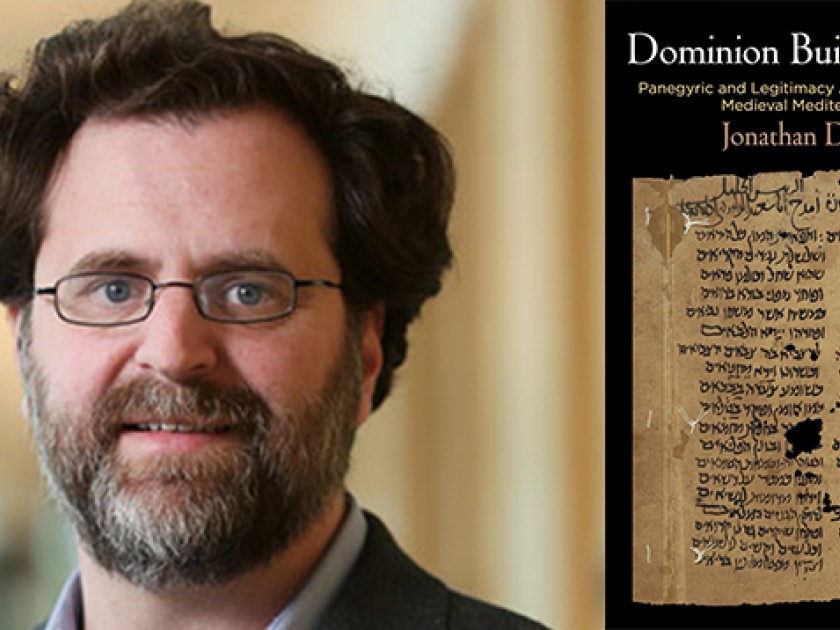Join a community of readers who are committed to Jewish stories
Sign up for JBC’s Nu Reads, a curated selection of Jewish books delivered straight to your door!

Image credit: Brandeis University
In advance of the 68th Annual National Jewish Book Awards ceremony on March 5th, 2019 (which you can buy tickets for here), Jewish Book Council is sharing short interviews with the winners in each category.
Jonathan Decter’s Dominion Built of Praise is the winner of the 2018 Mimi S. Frank Award for Sephardic Culture in Memory of Becky Levy. In his book, Decter analyzes panegyric writing — dedications to poets, patrons, merchants, communal leaders, and scholars — written in Hebrew and Judeo-Arabic, among other languages, from the tenth through thirteenth centuries in the Islamic Mediterranean world. Judges on the Sephardic Culture panel write, “Elegantly written and prodigiously researched, Dominion Built of Praise opens a window on the cultural norms and political ambitions of the medieval Mediterranean, and the place of Jews and Muslims — and poetry — in this vibrant and culturally rich context.”
Which three Jewish writers, dead or alive, would you most like to have dinner with?
Judah Halevi (for the most beautiful words), Hannah Arendt (for fierce independence of thought), and Saul Bellow (because I’m entering middle age).
What’s your favorite book that no one else has heard of?
Risalat al-ghufran (The Epistle of Forgiveness) by Abu Alaa al-Maari, an Arabic work that features a tour of heaven and hell, anticipating Dante. He was highly irreverent.
Which Jewish writers working today do you admire most?
I live in the Middle Ages.
What are you reading right now?
Be-hazarah me-Emek Refa’im (Returning from the Valley of Shades) by Haim Be’er. It’s about a revered author from Jerusalem, renowned for his knowledge of the city, who had become a Christian.
What are your greatest creative influences (other than books)?
Islamic geometric designs and hikes in forests and mountains.
What do you hope readers will take away from your book?
A sense that Jewish culture in the Medieval Mediterranean worked according to its own particular social logic and aesthetic sensibility, and that this world was very different from our own.